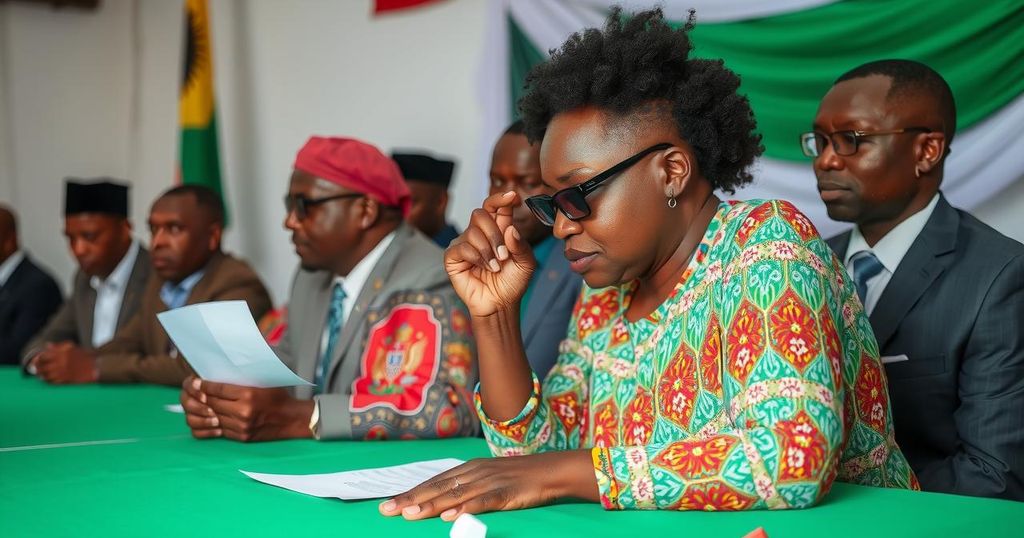World news
2024 ELECTIONS, ABDALLAH SAMBI, AFRICA, AFRICA CENTER FOR STRATEGIC STUDIES, AHMED, AP, AP AFRICA NEWS, ASSOUMANI, AZ, AZALI ASSOUMANI, COMOROS, CONVENTION FOR THE RENEWAL OF THE COMOROS, ELECTIONS, EUROPE, FRANCE, GOVERNANCE, GOVERNMENT, GRANDE COMORE, INDIAN OCEAN, JUWA, MADAGASCAR, MAYOTTE, MIT, MITSOUDJÉ, PRESIDENTIAL ELECTION, VOTER TURNOUT
David O'Sullivan
0 Comments
Comoros Parliamentary Election Marred by Opposition Boycotts and Alleged Authoritarianism
Comoros held a parliamentary election on Sunday, which was boycotted by some opposition parties. Critics accused President Azali Assoumani of authoritarianism and questioned the electoral integrity. Voter turnout is expected to be low due to public disillusionment, following a history of disputed elections and political repression. The election will determine the composition of the legislature, with results anticipated next week.
On Sunday, Comoros conducted a parliamentary election amidst a boycott from some opposition parties who criticized President Azali Assoumani’s government for its increasingly authoritarian behavior and questioned the electoral process’s integrity. The election, which aims to fill 33 legislative seats, follows a history of electoral disputes and alleged manipulation. The national electoral commission anticipates reporting the results next week. Approximately 330,000 citizens are registered to vote in a country of around 850,000 people, yet opposition factions predict low turnout due to widespread disillusionment with democratic practices.
The ruling Convention for the Renewal of the Comoros party secured 20 out of 24 constituency seats in the previous 2020 parliamentary elections. Various parties, including the Juwa Party led by former President Ahmed Abdallah Sambi, have labeled the previous electoral processes as illegitimate and have chosen to abstain from this election. With Assoumani having amended the constitution to extend his time in power, observers remark that his leadership has become characterized by increasing political oppression and a lack of competitive elections. Despite the looming threat of Tropical Cyclone Dikeledi, authorities proceeded with the voting.
Comoros is an archipelago located off the eastern coast of Africa, comprised of three primary islands. Since gaining independence from France in 1975, the nation has experienced numerous military coups, with President Azali Assoumani emerging from a military background and first assuming power in 1999. The political landscape in Comoros has been tumultuous, marked by significant instability and accusations of undemocratic practices during elections, notably the controversial electoral validity of the 2020 parliamentary elections which the opposition has consistently decried as fraudulent.
The recent parliamentary election in Comoros illustrates the ongoing tensions between the ruling party and opposition groups amidst accusations of electoral malpractice and authoritarian governance. The anticipated low voter turnout reflects public discontent with the political climate, underscoring the challenges faced by the nation in establishing democratic practices. As Comoros navigates these complex political realities, international observers will likely keep a close eye on the outcome and implications of this election.
Original Source: www.wral.com




Post Comment